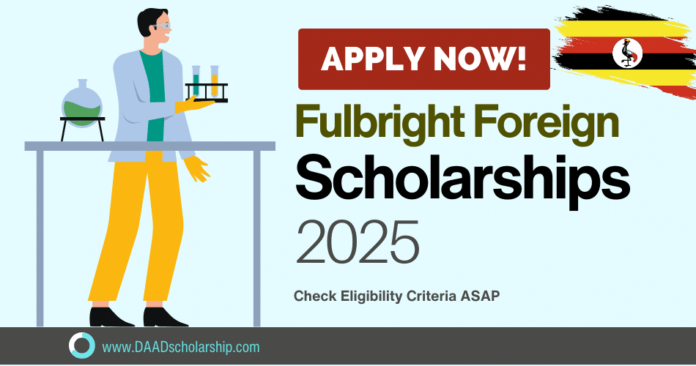The U.S. Mission is inviting applications for the 2025 Fulbright African Research Scholar Program, with a closing date of April 12, 2024. This initiative provides funding for African university faculty, administrators, and research institute professionals to pursue postdoctoral research or curriculum development and research at academic or research institutions in the United States. Notably, programs involving dissertation research or general professional travel are ineligible for this program. Curriculum development grants aim to foster the creation of new courses, curricula, or programs upon the participant’s return to their home institution.
Applicants can opt for either Research Grants or Program and Curriculum Development Grants. Research Grants typically span three to nine months and necessitate a Ph.D. They require a clear project statement directly aligned with the applicant’s ongoing teaching and/or research duties. Longer grants may be considered if the research proposal warrants additional time.
Program and Curriculum Development Grants, lasting three to five months, focus on reading and research beneficial to both the scholar and their home institution. Proposals should articulate how the gained knowledge will enhance classroom instruction and other professional duties.
Application and Selection Process
- Applicants must hold Ugandan citizenship.
- Awards are open to individuals of all academic disciplines, faculty ranks, sexes, and ages.
- Clinical medical research proposals involving patient contact are not eligible.
- Preference is given to proposals aligning with the Fulbright Program’s mission of fostering mutual understanding through academic exchange.
- Special consideration is given to HIV/AIDS-related research proposals.
- Preference is accorded to individuals who have not visited the United States in the past five years.
- Proficiency in English is a prerequisite.
- For research applicants, a minimum of three years of university teaching experience and a strong scholarly track record are preferred.
- Plagiarism results in disqualification.
- Doctoral dissertation research, postdoctoral research immediately following a doctorate, or general professional travel are ineligible.
- Applications must be submitted online at: Application Link.
Applications undergo review by a local selection panel. Final nominations are assessed in the United States by the J. William Fulbright Foreign Scholarship Board. Ideally, scholars should plan to commence their travel in August 2025 or January 2026 to align with U.S. university schedules. Only short-listed candidates receive further communication post-application review.
Empowering African Scholars: The Impact of Fulbright Research Grants
The Fulbright African Research Scholar Program offers invaluable opportunities for Africans seeking research grants. Here’s why these grants are important:
- Access to Resources: Research grants provide access to resources, facilities, and expertise that may not be readily available in African institutions. This access enhances the quality and depth of research conducted by African scholars.
- International Collaboration: Engaging in research abroad facilitates international collaboration and networking opportunities. Scholars can collaborate with experts in their field, exchange ideas, and establish long-term partnerships that benefit their home institutions.
- Capacity Building: Research grants contribute to capacity building by allowing scholars to acquire new skills, methodologies, and perspectives. This knowledge transfer enhances the research capabilities of African institutions and contributes to academic excellence.
- Knowledge Transfer: Scholars returning from research grants bring back valuable knowledge and experiences that enrich teaching, curriculum development, and research activities at their home institutions. This fosters the dissemination of knowledge and promotes academic growth within the African academic community.
- Professional Development: Research grants support the professional development of African scholars by providing opportunities for career advancement, publication, and recognition within their academic fields. These experiences contribute to personal growth and enhance the reputation of African scholars on the global stage.
- Addressing Local Challenges: Research grants enable scholars to address pressing local and regional challenges through innovative research projects. By focusing on issues relevant to African contexts, scholars can contribute to positive social, economic, and environmental change in their communities.
- Promoting Diversity and Inclusion: The Fulbright African Research Scholar Program promotes diversity and inclusion by welcoming applicants from diverse academic disciplines, backgrounds, and demographics. This inclusive approach fosters a vibrant exchange of ideas and perspectives, enriching the overall academic experience.
Overall, research grants play a crucial role in empowering African scholars, advancing knowledge creation, and promoting international understanding and collaboration. The Fulbright African Research Scholar Program serves as a catalyst for academic excellence and innovation in Africa and beyond.
For inquiries, please reach out to U.S. Mission Uganda via email: kampalaexchanges@state.gov.
















 The African Research (AR) Index is a comprehensive scholarly directory and database focused explicitly on journal publishers that publish and disseminate African research.
The African Research (AR) Index is a comprehensive scholarly directory and database focused explicitly on journal publishers that publish and disseminate African research.

